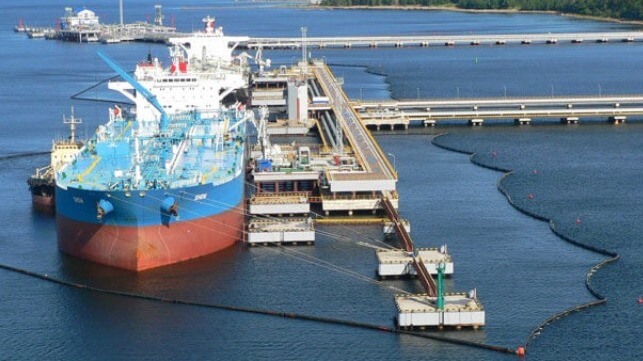China and India Keep Russia's Oil Exports Afloat

Chinese and Indian buyers are keeping Russia's oil export industry afloat, providing critical foreign revenue for the Russian government, according to the latest market data from research firm Kpler.
The numbers show that Asian refiners are now buying an extra 500,000 barrels a day, absorbing almost exactly the same amount that European buyers have cut back. Meanwhile, Indian imports have soared from a negligible volume last year to 840,000 barrels per day last month.
For perspective, according to numbers from TankerTrackers.com, all BRICS nations combined were buying 520,000 bpd of Russian oil in the month before the invasion.
One reason for the shift is price: Russian crude is trading at a heavy discount due to its invasion of Ukraine, and it is now worth about $30 a barrel less than Brent on the open market. The discount and geographic shift are a product of the efforts of NATO-allied nations to exit Russian energy. The U.S., UK and Canada have banned Russian oil imports, and the EU is taking steps to exclude Russian oil cargoes from its own borders and from the global marketplace. Working together with the UK, the EU plans to ban European companies from providing marine insurance cover for any Russian oil, anywhere in the world. This would exclude Russian cargoes from the overwhelming majority of the P&I and reinsurance markets.

that matters most
Get the latest maritime news delivered to your inbox daily.
However, Russian energy exporters say that they have already begun to arrange their own domestic insurance in order to keep commerce moving. State-owned shipping company Sovcomflot has new cover from another state-owned enterprise, the Russian National Reinsurance Company. In addition, Sovcomflot has reportedly arranged to have its fleet classed by a well-known class society by working through a subsidiary in Dubai.
While these workarounds might appear to subvert the allied pressure campaign on Moscow, the diversion of Russian oil may also come as a relief to some. If Russian crude were fully removed from the market, the price of Brent could soar to $185 a barrel, according to JP Morgan. This is not lost on the U.S. and its NATO allies: the FT reports that the White House has quietly asked its European partners to consider softening the insurance ban on Russian oil, fearing that extreme oil prices could damage the economy.
